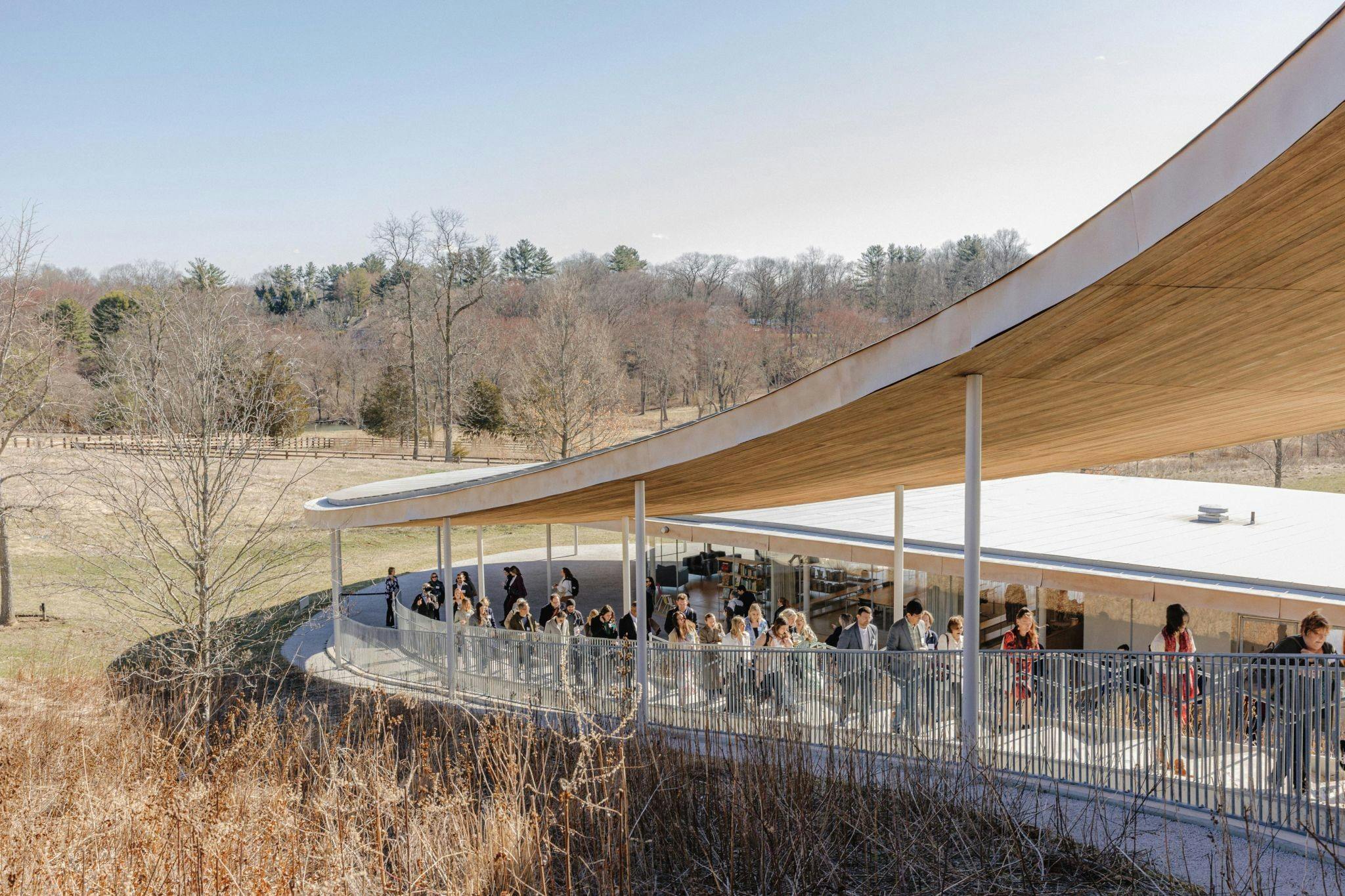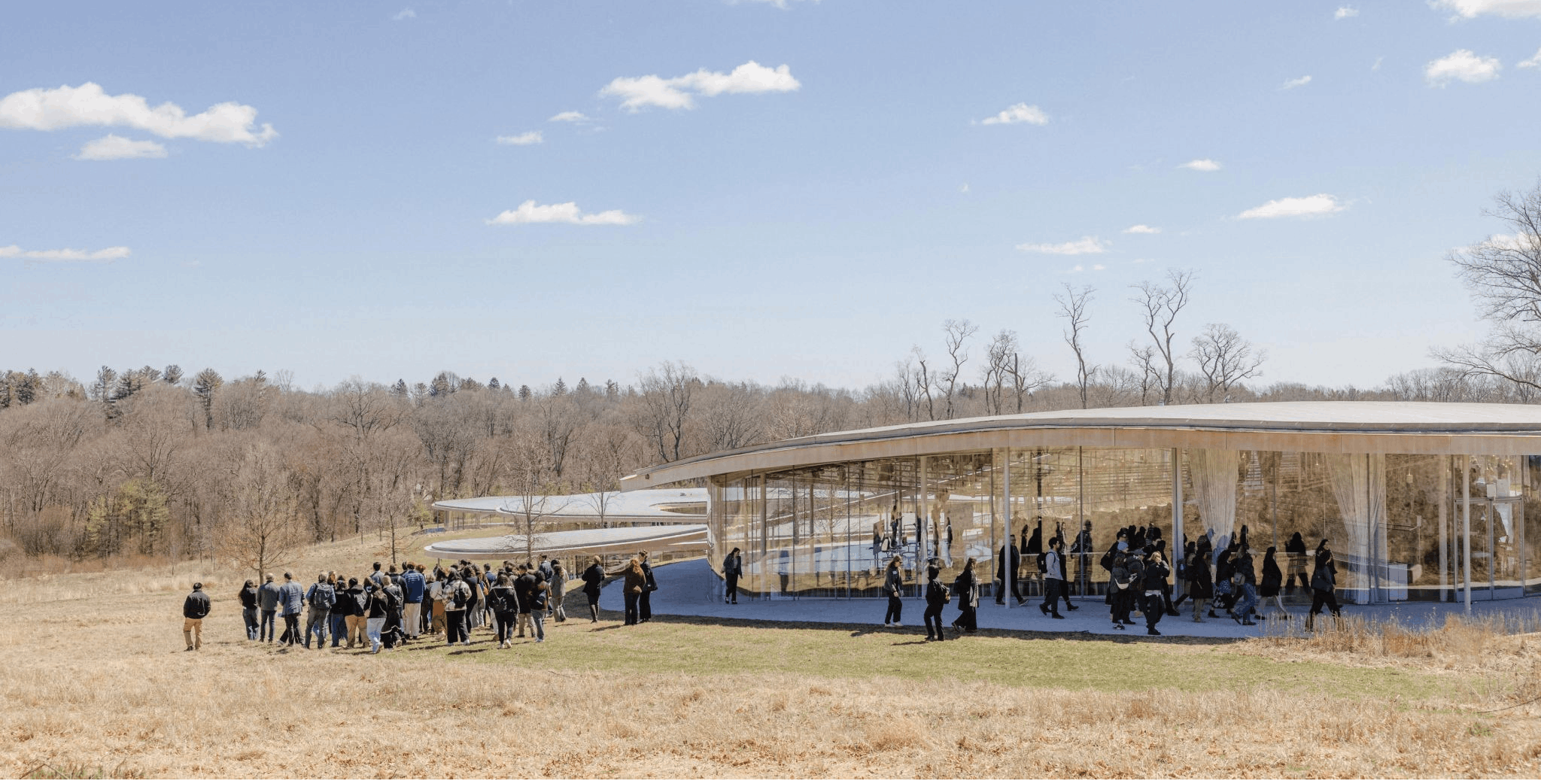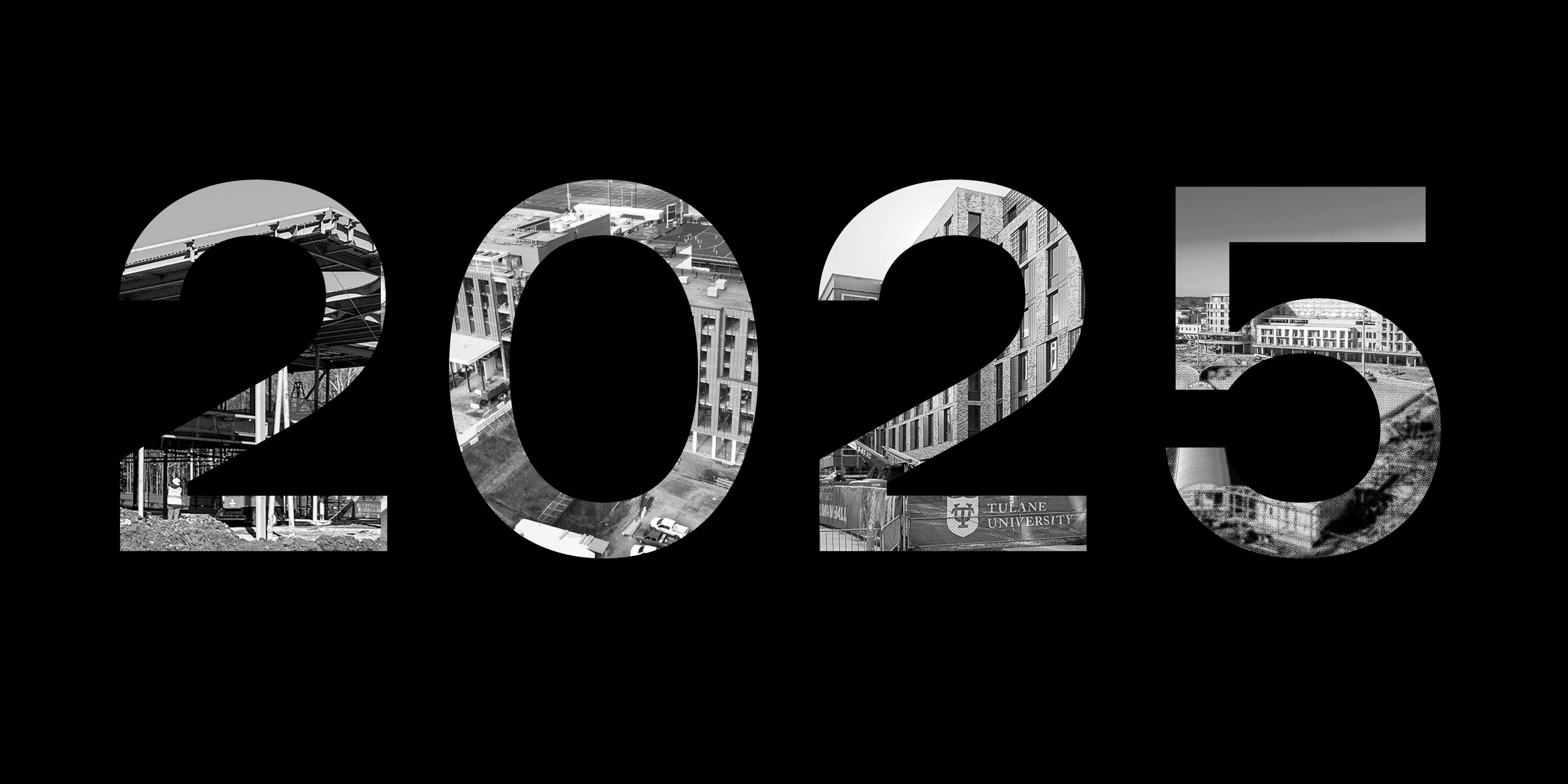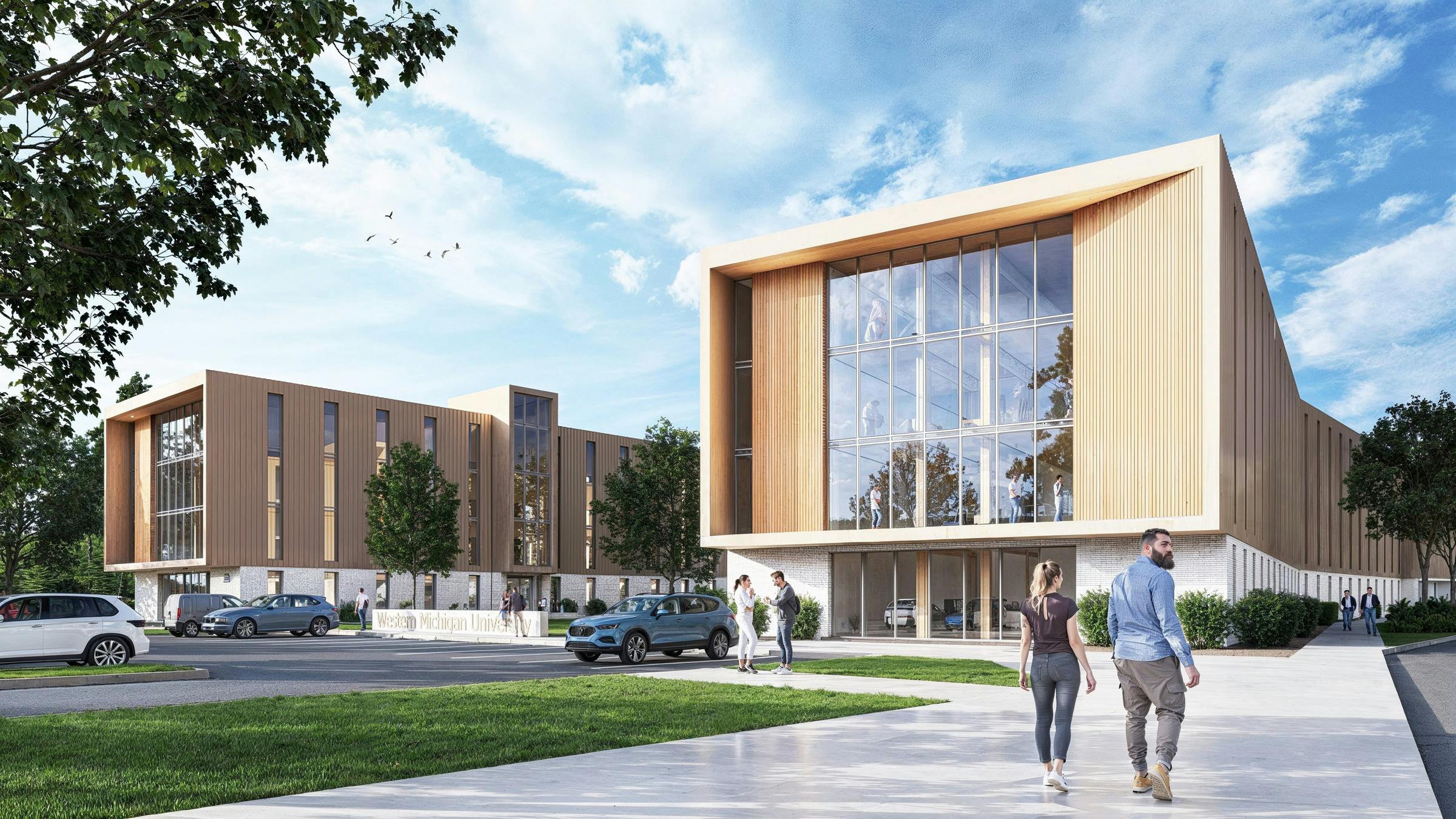



Reflections from the Design for Freedom Summit
At this year’s Design for Freedom Summit, held at Grace Farms in New Canaan, Connecticut, leaders from across the architecture, construction, and advocacy communities gathered to confront one of the industry’s most pressing ethical imperatives: eliminating forced labor in the building materials supply chain.
Among the participants was Hanbury CEO David Keith, FAIA, who joined a panel discussion on the University of Virginia’s Karsh Institute of Democracy. Designed by Höweler + Yoon in collaboration with Hanbury, the project is one of Grace Farms’ Design for Freedom Pilot Projects, demonstrating how civic architecture can lead by example in verifying supply chains and aligning construction practices with human rights.
“The premise of Design for Freedom is simple: we should strive to eliminate the use of materials sourced through forced labor,” said Keith. “Helping raise awareness is perhaps our biggest charge.”


According to the International Labour Organization, more than 50 million people are currently living in conditions of modern slavery, including over 20 million children. These realities, though often hidden, are embedded in global supply chains. Many of the products we use, the food and beverages we consume, and the buildings we live and work in are sourced from suppliers whose labor practices are unknown. The Design for Freedom initiative brings both visibility and action to these issues, equipping architects, contractors, and owners with tools to question sourcing, incorporate ethical standards into specifications, and prioritize transparency throughout the construction process.
The panel, “Designing Democracy: Transparency, Materials, and the Public Good,” brought together members of the Karsh Institute’s extended project team, including UVA, Höweler + Yoon, and Hourigan, to share how these goals are being translated into practice. For Hanbury, the process reflects not only the building’s purpose, but also a principled approach to how it is made.




“Among the most resonant moments for me was the testimony of Amar Lal, a lawyer and activist who experienced debt bondage as a child laborer until he was rescued at the age of seven. His story was a reminder that supply chains are not abstract, they are human.”
- David Keith, CEO


The Summit welcomed more than 500 leaders and 75 students from 25 universities for panels and discussions on topics ranging from decarbonization to ethical forestry and global labor practices. The Karsh Institute, first announced as a Pilot Project at the 2024 Summit, is now under construction. It will serve as the future home to UVA’s Karsh Institute of Democracy and the Batten School of Leadership and Public Policy, two institutions focused on civic engagement, policy, and the public good.
The building’s design reflects this mission not only through its program, but also through its material integrity. Key product selections have undergone verification for ethical sourcing. Specifications are aligned with Design for Freedom principles, and the team’s commitment to accountability has reshaped the traditional delivery model in service of a more just future.


The built environment consumes more raw materials than any other sector in the world. With that scale comes both responsibility and opportunity. Hanbury’s participation in Design for Freedom reflects our belief that architecture carries a civic duty, both in form and in footprint. It is also an extension of our commitment to work that reflects both our clients’ values and our own. Projects like the Karsh Institute challenge us to act with clarity and conscience, understanding that the buildings we shape reflect the values we choose to uphold.
To learn more about the Design for Freedom initiative, visit designforfreedom.org.
Photos courtesy of Melani Lust












